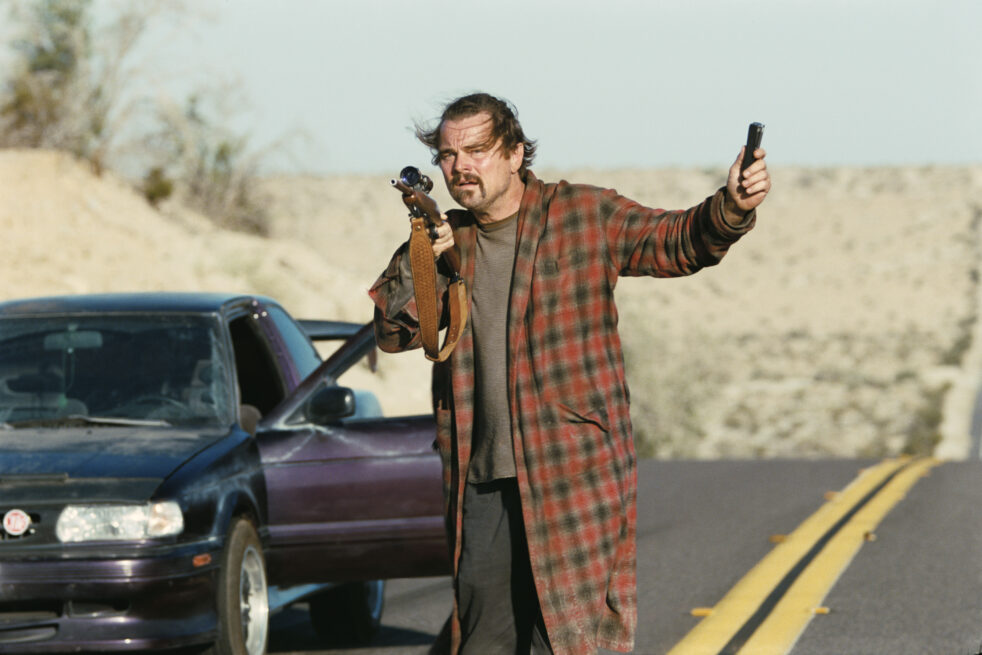In “One Battle After Another,” director Paul Thomas Anderson fuses breakneck car chases, biting satire and revolution into a darkly comedic spectacle. The film follows Bob Ferguson (Leonardo DiCaprio), a washed-up ex-revolutionary determined to protect his daughter, Willa Ferguson (Chase Infiniti). Loosely based on the 1990 novel “Vineland,” Anderson returns to the paranoia of “Inherent Vice” and the bruised family relationships of “Magnolia.”
Opening on a dramatized America, the movie backtracks to Bob’s incendiary past with the militant group French 75. Alongside Willa’s mother, Perfidia Beverly Hills, Bob liberates an immigration camp, bombs government buildings and threatens politicians in violent political protest. It sets up the present-day: Bob, drugged up and paranoid 16 years later, raising Willa in a cabin, with Perfidia long gone. It’s not an off-the-grid utopia — there’s Bob and Willa’s splintering relationship — but with the return of Bob’s nemesis, he must face his past to protect his daughter.
The film flirts with melodrama, with a winding score and a satirical world that doesn’t venture too far into fantasy. The filming is clipped with rapid-fire shots — the camera rarely lingers. However, it’s in the tonal whiplash and subversion of expectations that Anderson finds the film’s sharpest humor. The movie is unabashedly political, but with a tone catapulting from melodrama to comedy.
The white supremacist faction monikers themselves as the “Christmas Adventurers Club,” and the audience can see the ridiculousness sheltered in their tough-guy posturing. The script doesn’t exalt the white supremacists to a cool, militant grandeur. In its final scenes, the film lays bare the hypocrisy and absurdity of authoritarian nationalism, refusing to grant its villains even an ounce of sincerity.
It’s a timely critique (and mockery) of America’s oppressive drift without falling into the pitfalls of accidental glorification. The blatant political tone, most pointedly of race and immigration, are made sharp and poignant by the current political climate. In a reality where people get racially profiled and detained off the streets, it’s easy to see the slippery slope into the film’s satirization.
At the core of the story lies the relationship between Bob and his daughter. While Bob is not the perfect father, his drive to protect his daughter is commendable. In a recent interview, DiCaprio stated that, “I guess the humanity of the character in a strange way. You have an incredibly flawed protagonist and unexpected choices. As soon as I read the script that Paul made with the character, I think it’s a complete setup for a sort of traditional trope that maybe we’ve seen a multitude of times before. But the character evolved as the movie went.” The pivot from expected to something more real and human anchors the movie’s emotions.
If you’re looking for an action-packed political commentary that will have you on the edge of your seat, “One Battle After Another” is a must-see film. As Regina Hall stated, “[Anderson] can find humor in the absurdity in things, which he did in this. I mean, it’s about love. It is about family…connection, commitment, revolution.”
